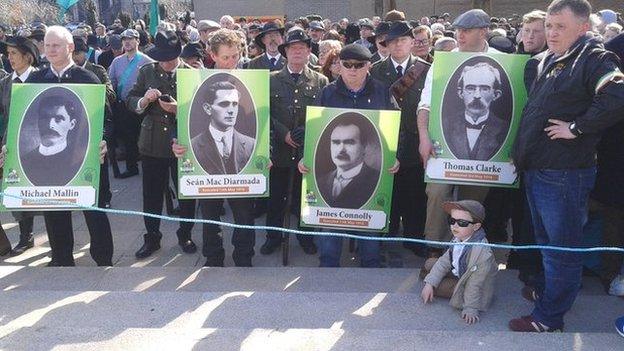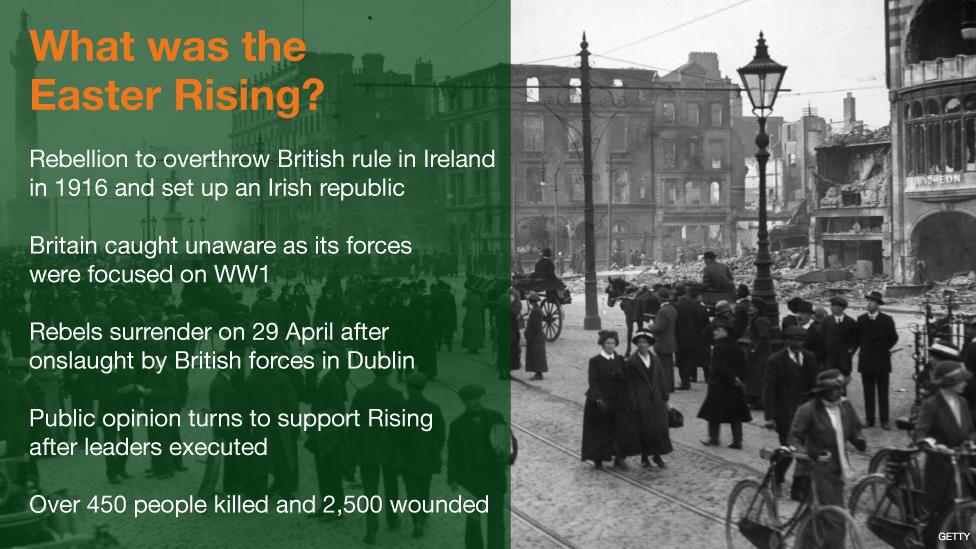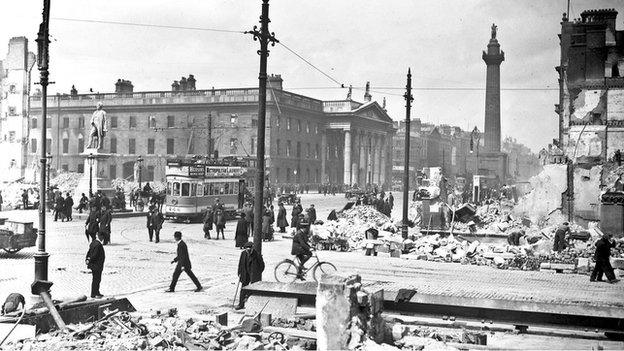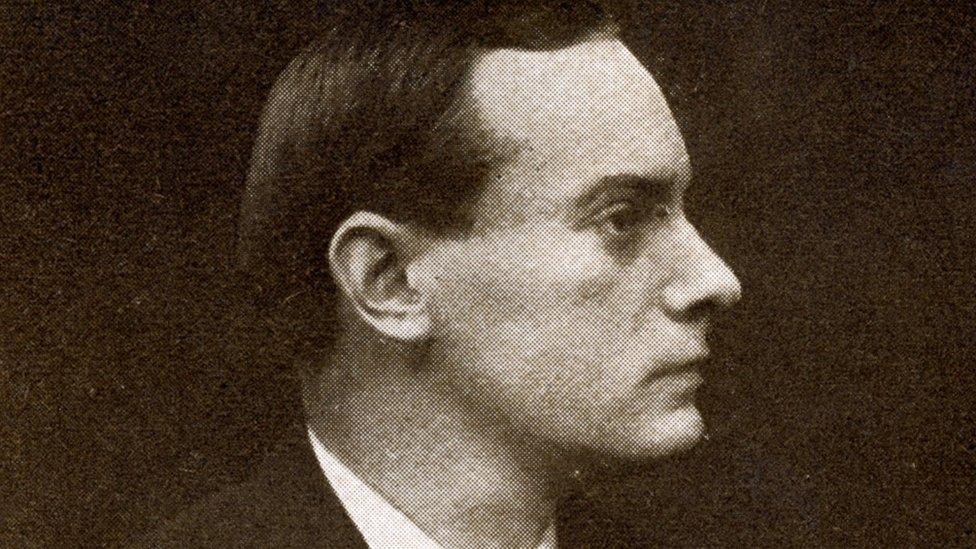1916 Easter Rising: Dublin march commemorates rebel leaders
- Published

The Lost Leaders march commemorated the Irish rebel leaders who were executed days after the failed rebellion
Several thousand people have marched in Dublin to commemorate 1916 Easter Rising leaders, who were executed by British troops after the rebellion.
The procession began at Kilmainham Gaol, where 14 rebels were imprisoned and then shot dead. It ended at Arbour Hill cemetery, where they are buried.
Sinn Féin's Gerry Adams addressed the Lost Leaders march and the party asked participants to come in period dress.
Northern Ireland Deputy First Minister Martin McGuinness also attended.
The 1916 Easter Rising was an ill-fated, six-day rebellion against British rule in Ireland but many historians view it as the event that transformed Irish republicanism, and led to the eventual creation of an independent Republic of Ireland.
More than 480 people were killed during the Easter Rising, over half of them civilians.

Read more on the 1916 Easter Rising
Addressing the crowd at Arbour Hill cemetery, Mr Adams paid tribute to the 1916 rebels, saying "a few hundred poorly equipped Irish men and women took on the might of the largest empire the world had ever seen".
'Historic opportunity'
He said the 1916 proclamation of independence "remains the mission statement for Irish republicans today".
The Sinn Féin leader said the centenary of the Easter Rising was "an historic opportunity to look realistically towards ending partition and sectarianism and division" and to "see how we can make the united, independent Ireland envisaged in 1916 a reality".
Mr Adams added that a united Ireland "means the unity of the people of this island, including those who see themselves as British".
"That is why Irish governments must pursue every avenue to promote all-Ireland co-operation and to build relationships between all our people," he said.
"This must include genuine efforts to outreach to the unionists on the basis of equality."
Friday's march included re-enactments performed by members of the Cabra Historical Society.
Relatives of the 1916 rebel leaders and a number of marching bands were also invited.
The event took place ahead of the main government-organised commemorations this weekend.
The main focus of the official events will be a military parade - the largest in the history of the Republic of Ireland - which will will pass through the streets of the Irish capital on Sunday.
- Published23 March 2016

- Published23 March 2016
